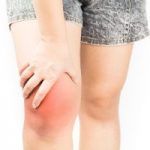
Another week has gone by in the world of health news, so we at Bel Marra have taken the time to bring you your weekly health news round up. Gas build-up can make us feel uncomfortable and can even be embarrassing when we don’t have it under control. Learning how to get rid of gas immediately is something we feel everyone can appreciate.
Advertisement
Our rib cage houses vital organs and plays a role in how we breathe and injury to this part of the body, known as intercostal muscle strain, can be a common problem many people face. Knowing how to recognize this type of injury can help you seek aid when needed and avoid any potential complication. To round off your week, we have also provided you an article on swollen occipital lymph nodes and how this important part of your lymphatic system can play a major role in disease.
23 natural remedies to get rid of gas immediately
We all wish we knew how to get rid of gas immediately—it would help us avoid embarrassment. Gas pains are a very common problem and affect all of us at some point, with others having this problem on a daily basis. Gas pains are often accompanied by uncomfortable bowel sounds emanating from the intestinal track that often makes us think we need to find a bathroom right away or need to covertly pass some gas without anyone noticing.
Intestinal gas builds up in the digestive tract of every human being. Gas is just one of the products of food being broken down and digested, often leading to burping, belching, and flatulence. Having gas is usually not a point of concern for most people, but can be an indication of other bowel health issues. Continue reading…
 What are symptoms of intercostal muscle strain? Causes, tips, and guidance
What are symptoms of intercostal muscle strain? Causes, tips, and guidance
Intercostal muscle strain is pain or discomfort in the muscles located in between our ribs. Strain to this location of the body can be the result of forceful movements, particularly ones that result in a sudden twist of the torso. A particularly forceful movement can tear the intercostal muscles.
The intercostal muscles are composed of several groups of muscles that run between the ribs, helping to form and move the chest wall. They are also involved in the mechanical action of breathing, as it requires expansion and contraction of the chest to facilitate breathing.
The intercostal muscles are composed of several groups of muscles that run between the ribs, helping to form and move the chest wall. They are also involved in the mechanical action of breathing, as it requires expansion and contraction of the chest to facilitate breathing. Continue reading…
 What causes a swollen occipital lymph node? Diagnosis and treatment
What causes a swollen occipital lymph node? Diagnosis and treatment
The occipital lymph nodes are part of the body’s lymphatic system and are found in the occipital region of the head, which is located at the back of your skull. Lymph nodes are ovoid or kidney-shaped organs that are widely spread throughout the body. They are linked by lymphatic vessels as part of the circulatory system. Lymph nodes are major sites of B and T lymphocytes and other white blood cells, making them vital parts of the immune system.
Finding swollen occipital lymph nodes can indicate you have an illness or infection. This may occur in the case of a viral or bacterial infection. The location of a swollen lymph node often serves as a clue for doctors as to what kind of infection you may be suffering from. Swollen occipital lymph nodes can also be painful as swelling starts to compress nearby nerves in the area. Continue reading…
 What is knee effusion? Causes, symptoms, and tests for water on the knee
What is knee effusion? Causes, symptoms, and tests for water on the knee
Advertisement
Knee effusion is a condition where fluid accumulates around the knee joint. This is sometimes referred to as having a swollen knee or having “water on the knee.” Normally, our joints have a small amount of fluid surrounding them called synovial fluid. This helps to reduce friction and promote smooth joint rotation. However, there are instances where our joints accumulate extra fluid as a result of injury, infection, or due to a contributing medical condition. Continue reading…

Pain in palm of hand: Palm pain causes and treatment
Having palm pain or pain in the palm of the hand can be the result of damage from acute injury to the bones, joints, or even nerves of the hand. Our hands serve as tools to interact with the rest of the world, so when we have a symptom like palm pain, it can affect everything we do.
Our palms are in constant contact with our environment and are naturally prone to being overused and exposed to various harms or injuries. The skin on our palms has adapted in this respect, being one of the areas of thickest skin on the human body. Continue reading…
